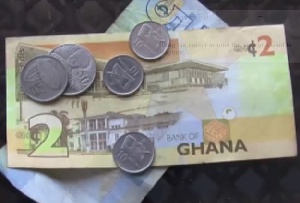The local currency has come under intense pressure in the run up to the elections, recording about 0.13 percent fall since November 30 and bringing the year-to-date depreciation rate to six percent.
The cedi has had a fairly stable year in which, as at end of November, it had depreciated just by a 4.7 percent, bringing year-to-date depreciation to 6 percent. But its performance in the last week is a cause of concern for managers of the economy, especially the Central Bank which has battled to keep the Cedi afloat with dollar auctions.
The ruling party is facing prospects of losing power as results of the Wednesday December 7, 2016 polls put the main opposition party on course to recapture power after an eight year absence. The Electoral Commission has been slow declaring results leading to heightened anxiety among the two main parties.
According to the Economist Intelligence Unit (EIU) late last month told investors that while it expects the NPP to win the general elections, it would not rule out possibilities of electoral dispute.
That update by EIU could have contributed to the slide especially over the past week if investors sought more dollar assets as they seek a stronger store of value against the consequences of a break out of violence over disputed results.
The past week’s depreciation came after a raft of measures tailored to stabilise the cedi are proving a difficult. The measures included the sale of a five-year GH¢400million domestic bond which prompted speculations in the market with analysts predicting that the cedi would rally strongly against the major trading currencies as foreign inflows deepened on the back of the auctioning of the bond, which was available to both domestic and foreign investors.
The Bank of Ghana also recently in a bid to augment dollar supply on the market auctioned a portion of the cocoa syndicated loan in three installment of US$20 million for the rest of the year.
The perennial weaknesses have largely been attributed to the fact that the country has remained import-dependent, which drives up dollar demand on the market.
This year, however, a combination of measures, including the US$918million IMF bailout programme, a US$1.8 billion cocoa syndicated loan, a US$750 million Eurobond and the central bank’s tightening of monetary policy, has helped arrest the cedi’s slide somewhat, giving it one of its best performances in the last five years.
Business News of Friday, 9 December 2016
Source: thebftonline.com

















